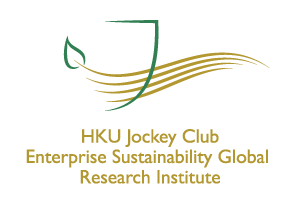
HKU Jockey Club Enterprise Sustainability Global Research Institute
World-Class Hub for Sustainability
Roundtable Reflections:
The Future of Hong Kong Economy Conference 2025-Anchoring Sustainable Investment in an Unstainable World
- We are living in an unsustainable world. If the economic system we operated in were sustainable, would we need to pursue sustainability? Logic suggests not.
- Only 17% of the UN SDG targets are on track, nearly half are showing minimal or moderate progress, and progress on over one third has stalled or even regressed.1
- The convergence of geopolitical uncertainties, particularly with Donald Trump’s re-election, the rising protectionism, wars and conflicts, threaten to disrupt the global landscape. Meanwhile, the anti-ESG movement undermines sustainable initiatives. Rapid technological advancements also create unpredictability, further complicating investment returns. We are living in an unstainable world full of uncertainties.
- Hong Kong market has witnessed growth in issuing green bond, ESG mutual fund as financing tools. Yet, discussions related to primary market are still limited.
- Our institute proudly moderated the 3rd panel, “Anchoring Sustainable Investment in an Unstainable World” led by Prof. Guojun He. We invited Ted CHAN, Head of Hong Kong, Senior Partner and Managing Director of Boston Consulting Group, Dr. Chaode MA, Assistant Resident Representative of UNDP China, and Mr. Ken WONG, Partner and Head of Asia Pacific, Infrastructure of EQT Partners, together, to discuss how could we further consolidate Hong Kong’s internationally-leading position.
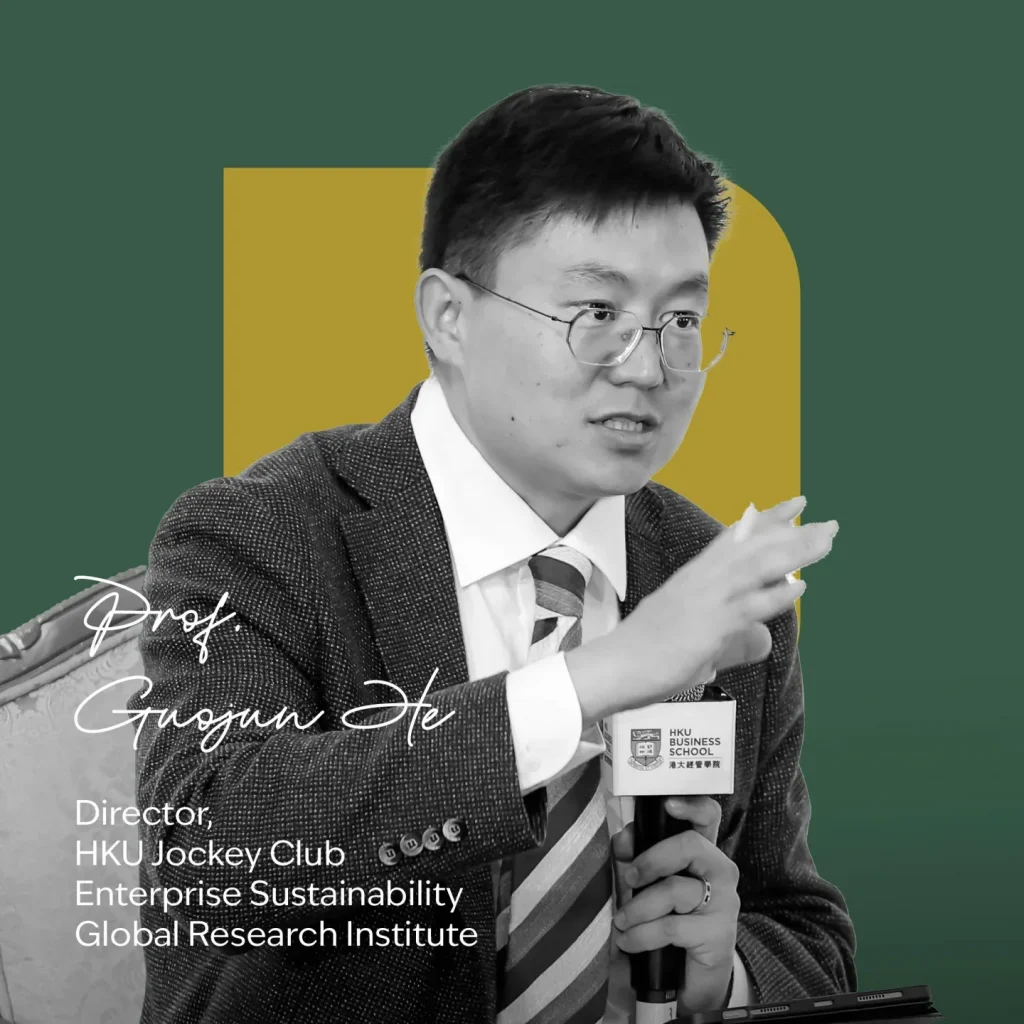
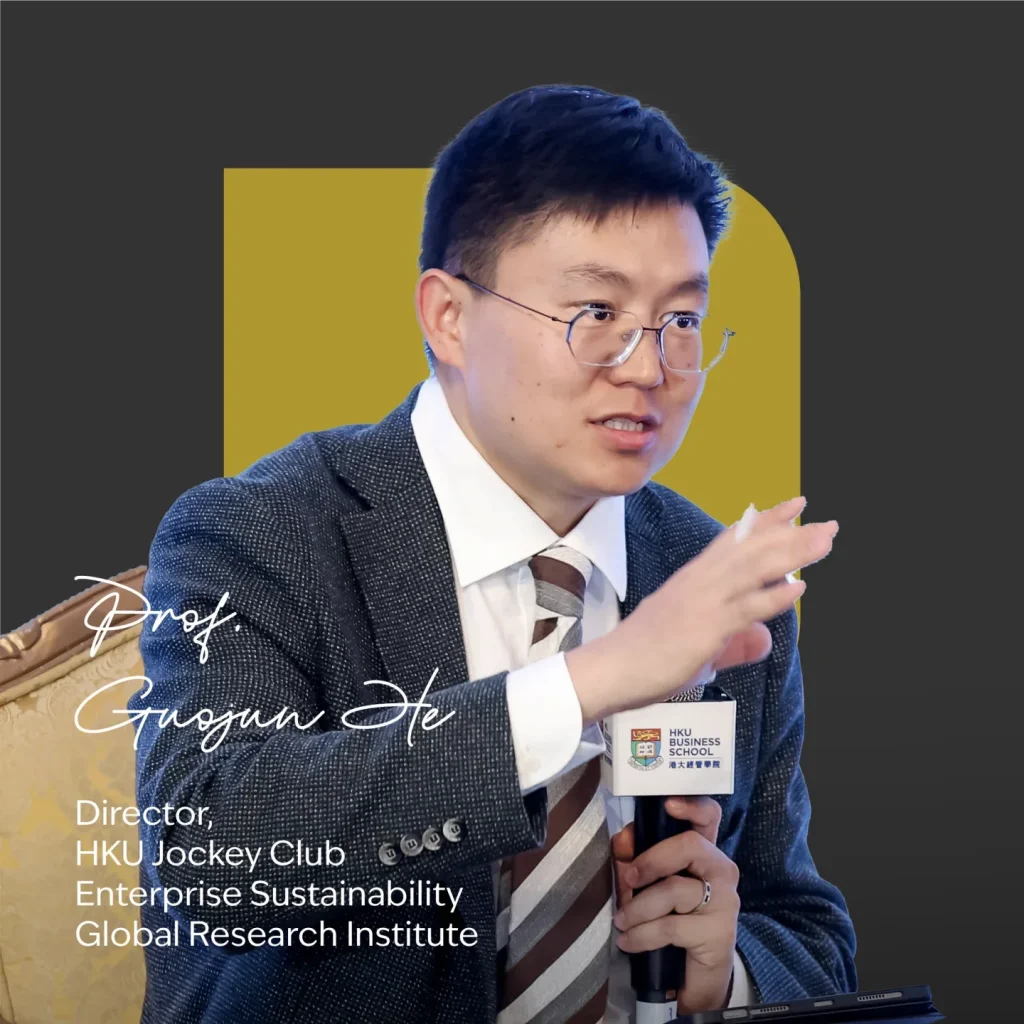
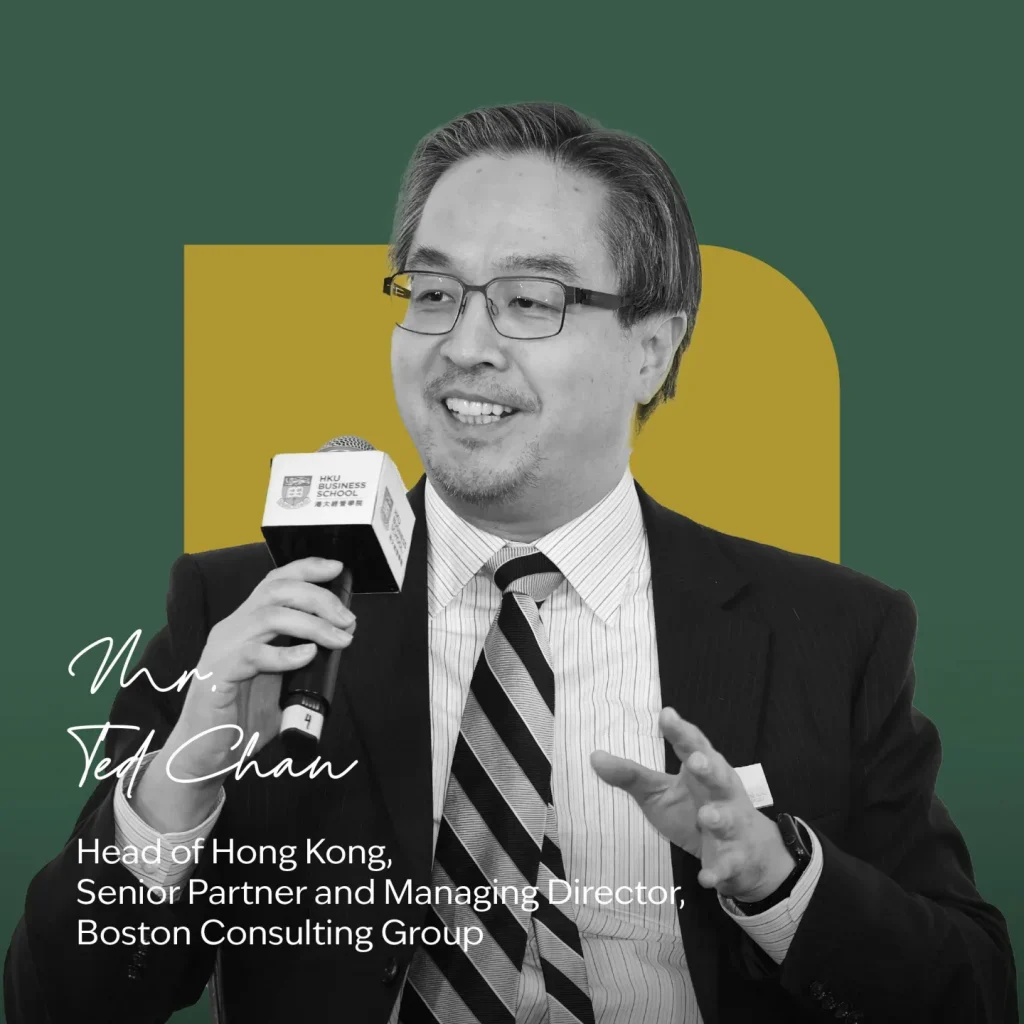
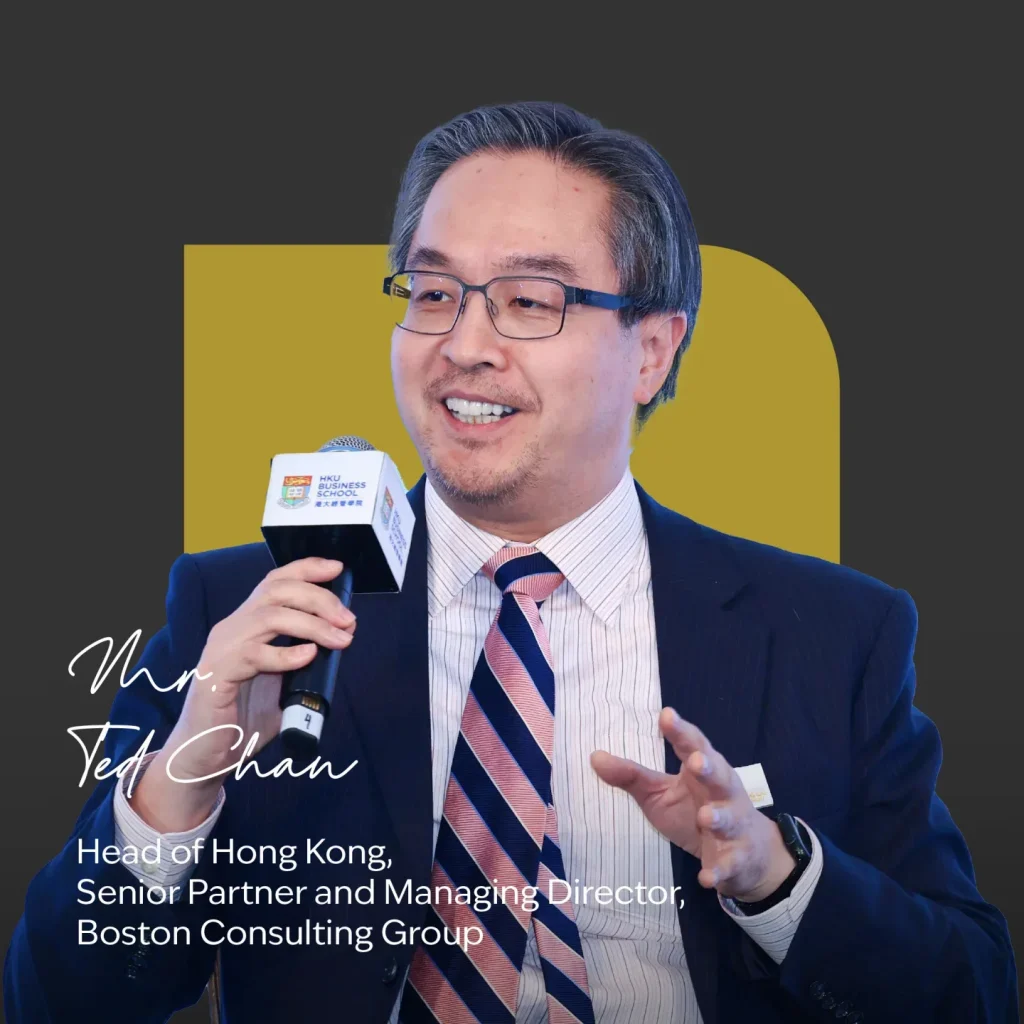
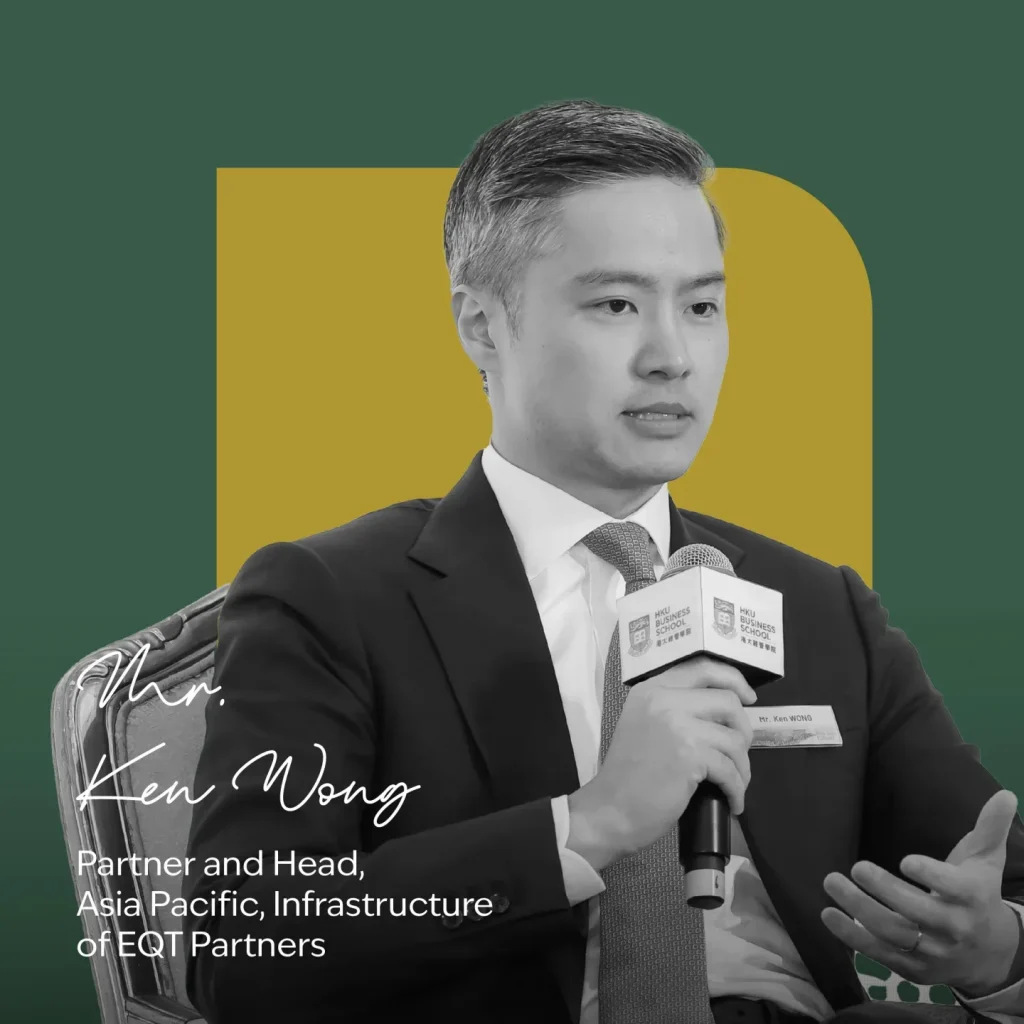
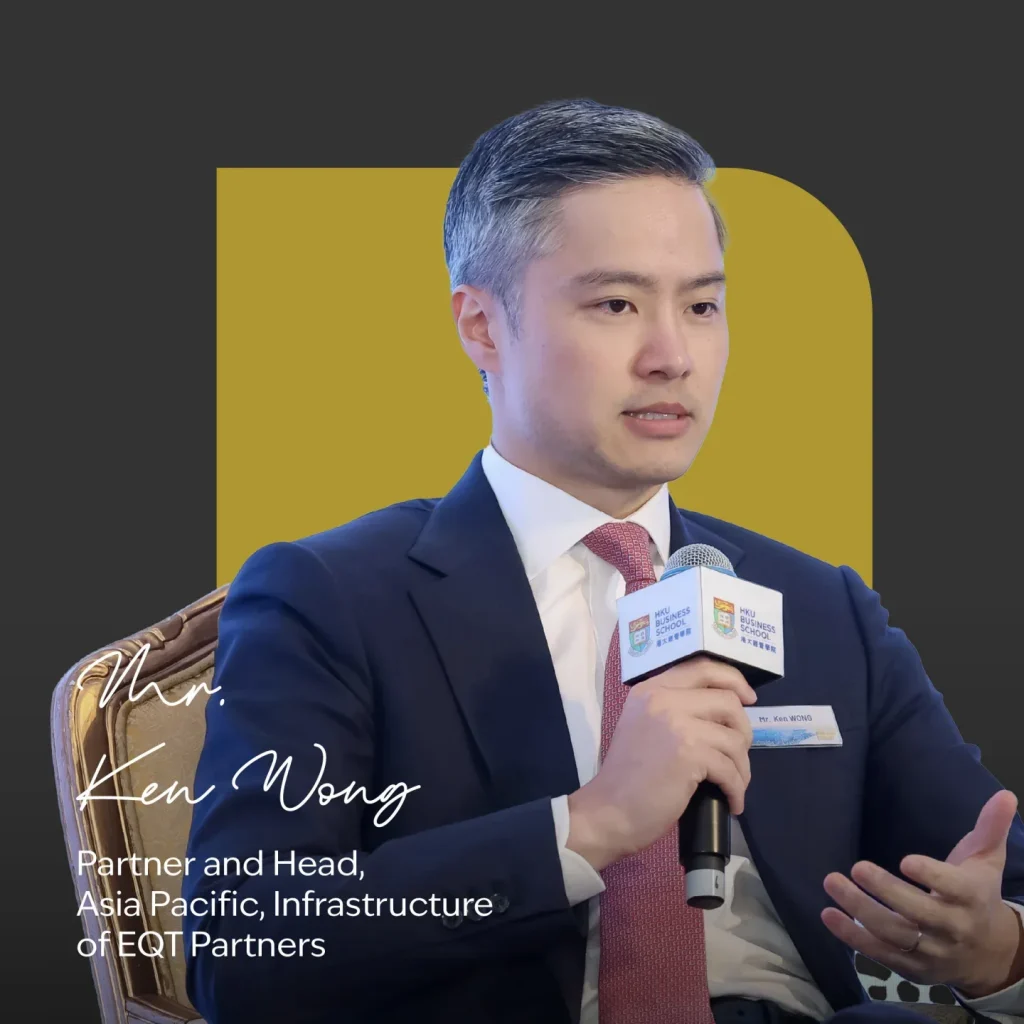


Issues addressed
- • Is sustainable investment overall pulling back or pushing forward?
- • Which region and sector should investors focus on whilst clean energy unsurprisingly lead the way in terms of causes attracting the most investment?
- • How does the global investing landscape impact current asset allocation and sustainable development strategies, especially regarding the differences between Europe, America, and Asia?
- • With the convergence of geopolitical uncertainties, particularly Donald Trump’s re-election and the anti-ESG movement, how Chinese enterprises adapt to the dynamics of green-tech investment environment?
- • Despite the crucial role of renewables sector in sustainable development, why have corporate stocks experienced significantly downturn?
- • In some cases, industry growth can intensify competition, making profitability increasingly difficult and leading many companies to end up bankrupt, similar to solar PV companies. How should investors wisely select potential companies in this field?
Key Takeaways
- • Sustainability is a business necessity, not just an ESG goal. Beyond meeting ESG compliance, investors must view green investments as long-term value creation strategies for competitive advantages.
- • India could be a top choice for renewable energy investment considering its stable policies, long-term fixed contracts, and large-scale project opportunities.
- • Chinese wind turbine manufacturers are catching up with global competitors, creating new market opportunities in emerging economies.
- • High financing costs from elevated interest rates and the stability of integrating renewable energy into the grid are the biggest obstacles—not lack of capital.
- • Most industries have not fully achieved green transformation and still need substantial capital to transition to fully green operations.
- • Hong Kong should capitalize on its status as an international financial hub to become a regional carbon trading center, improving ESG data transparency, and facilitating blended financing for large climate projects.
Closing Remarks
Global climate change, geopolitical conflicts, and intensified ideological differences continue to bring uncertainty to world economic development. We are living in such an unsustainable environment. As one of the world’s major financial centers, Hong Kong has the potential to lead sustainable finance development by fully leveraging its position as a sustainable finance hub. However, this undoubtedly needs close collaboration and communication among the government, academia, and industry.
We are honored to share the stage with Dr. Chaode Ma , Mr. Ken Wang, and Mr. Ted Chan for such insightful perspectives exchange. We also invite everyone to stay tuned with us!
About the Event
“The Future of Hong Kong Economy Conference 2025”, organised by HKU Business School and co- organised by the Hong Kong Institute of Economics and Business Strategy, concluded successfully on 16 January. The conference gathered esteemed scholars, policymakers and industry leaders to engage in dynamic discussions and examine strategic pathways for achieving sustainable economic development in Hong Kong. This year, the conference invited Professor James A. ROBINSON, Awardee of the 2024 Nobel Prize in Economics, as the keynote speaker.
Reference
[1] United Nations The Sustainable Development Goals Report 2024